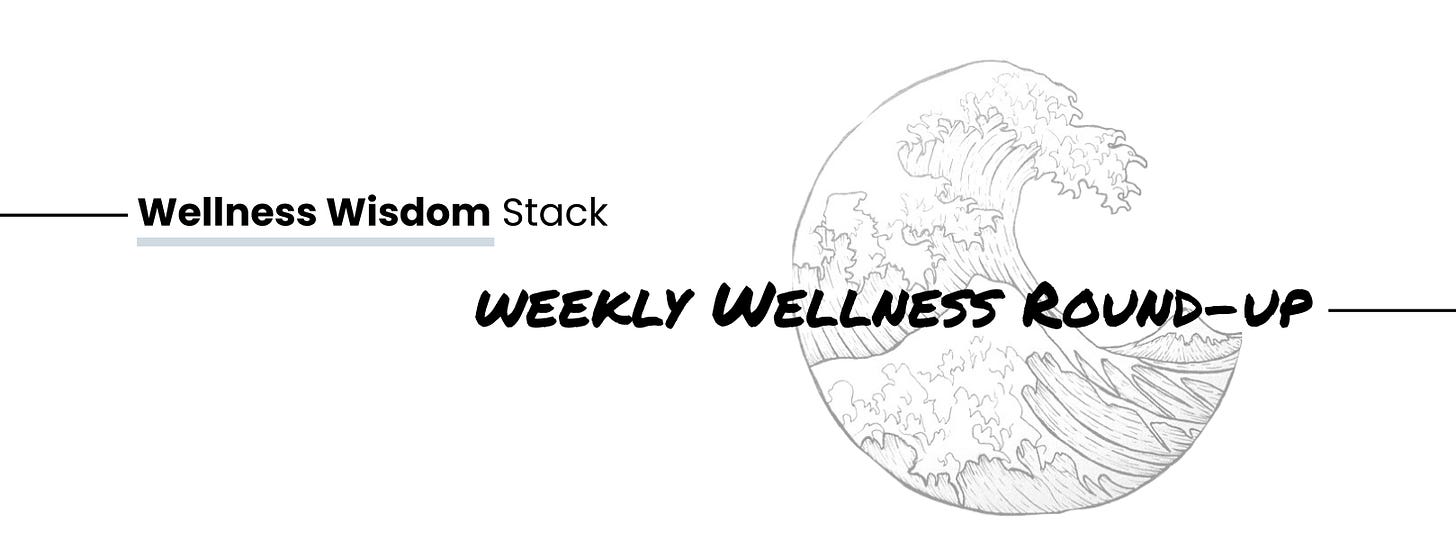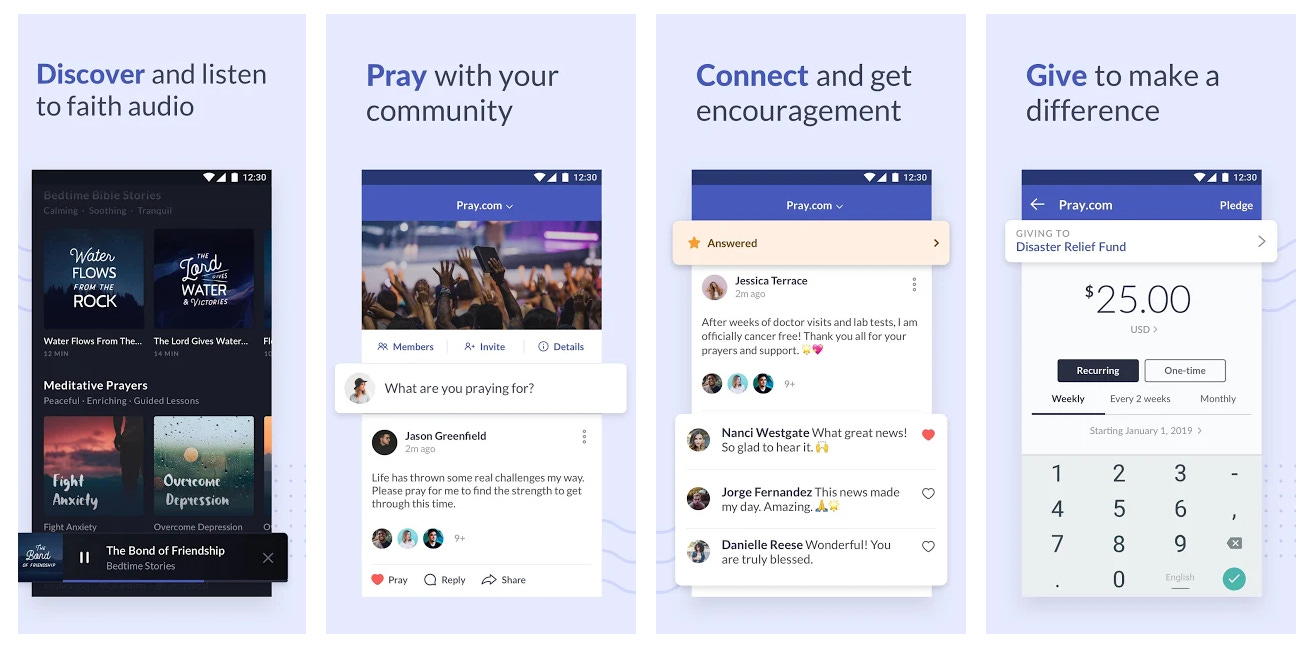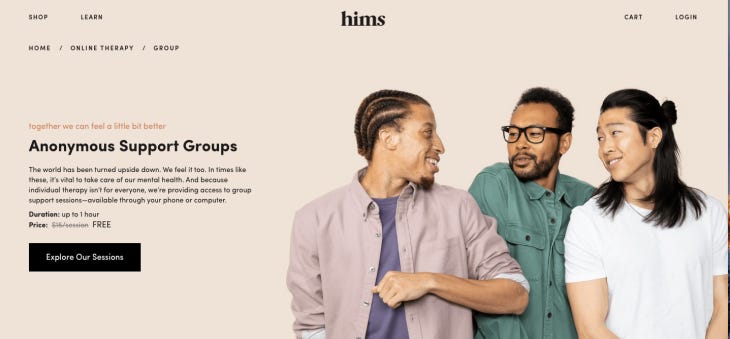Welcome to the 11th volume of Wellness Wisdom, a newsletter covering the mental health tech space + best resources to support your internal space. Fwd’d this newsletter? Sign up here.
This newsletter is free because I believe everyone deserves to have access to wellness resources.
If you want to support this publication, join me down the rabbit hole🔮🐇.
Hey amazing human!
With Twitter announcing that WFH will extend until forever and LA shelter-in-place stretching out to July, it truly feels like an endless “today”..

Despite time being “on pause”, as humans we crave progress and seek purpose from circumstances we’ve yet to fully understand. Could all the activity around making “meaning” from quarantine and creative endeavors be a distraction as opposed to true progress?
There’s a residual discomfort that comes from being truly present with ourselves in the “endless today”. For maybe the first time we are faced with the question: who am I without a past that feels distant and a future void of plans? Who am I without my story?
This morning I laid between rose bushes and counted clouds as they flowered across the vast sky. I realized something. Roses and clouds don’t have goals. Nature doesn’t brute force its own destiny.
“Nature does not hurry, yet everything is accomplished.” ~Lao Tzu
All too often we rush through our days, anxious to get things done at the fastest speed. However, going faster doesn’t necessarily mean accomplishing more or better. In reality, the opposite is true. If you slow down, you make fewer mistakes, are able to think more clearly, and act with purpose. Paradoxically, you’ll achieve your goals faster.
Going into this week I’m reminded to enjoy the journey and grow at the universe’s pace, not mine. To approach my days with ease and unwavering faith. To spend more time “being” instead of “doing”. To embody more of the Tao Te Ching:
☝️one take
“All things, said Aristotle, have been discovered and forgotten many times over. Progress, he assures us, is a delusion; human affairs are like the sea, which on its surface is disturbed into a thousand motions, and seems to be headed somewhere, while at its bottom it is comparatively changeless and still.” - Will Durant, On the Meaning of Life
Companies I've been a part of, like Stitch Fix and DoorDash, aren’t doing anything fundamentally novel. Whether it’s getting dressed or feeding ourselves, technology enables us to express the same core human needs, just in different ways.
The Elements of Product Value pyramid demonstrates that the best products address core needs that sit at higher levels of the pyramid. Functional needs are table stakes, whereas needs in the realms of emotional, life-changing, and achieving a social impact, garner increasing customer loyalty.
TikTok is not really about fun videos, but about creativity/self-expression. Facebook and Airbnb is about our need to “belong” to a tribe. Peloton is about keeping up physically with the tribe. Every new product is a re-interpretation of how we can express and achieve core needs that remain unchanged over the centuries
Today, I’d like to talk about how traditional realms of our emotional support systems are (again) being “reinvented” by technology. As coronavirus continues to force major areas of our lives online, so are the ways in which we receive emotional support from a community. 1-1 therapy has already made progress in transitioning online, as indicated by companies like Talkspace, AbleTo, and Ginger - but what about other parts of our emotional lives?
I’d like to share wellness start-ups on my radar that are at the forefront of this shift across family, religion, wellness, group therapy, marriage counseling, and substance abuse support.
👨👩👧👧 Moving our interactions with loved ones online
Cocoon ($3M Seed backed by YC, Foundation Capital, Shrug Capital, etc.) - started by ex-FB and YC alumni, is an app targeted at long-distance friends and family who want to stay in touch. Relative to iMessage, cocoon’s intentional features set it apart I.e. threaded chats, live flight status updates, sharing step counts, and the ability to strike up serendipitous chat.
💒 Moving our religious lives online
Pray.com (Series A $16M backed by Greylock and TPG Growth) - is a social network for churches where members can chat, request prayers and donate money. With congregations unable to meet in person, Pray.com enables churches to broadcast sermons. Analytics help pastors gauge engagement and grow the community. (I’m picturing retention cohort break-downs and hockey-stick growth charts during weekly priest stand-ups). This is a fascinating shift and begs the question: Could 3 months to a year in quarantine be enough to permanently change our religious habits?
🧘♀️ Moving wellness classes online
Kensho Health ($1.3M pre-seed backed by Founders Fund) - coins itself as holistic health’s first discovery platform backed by science. Recently the team has enabled at-home customers to discover new wellness courses, all hosted virtually. Courses like: Yogic breathing, Qi Gong, Sound Bowl meditation, and nutrition 101.
🛋 Moving group therapy online:
Hims ($197M raised to date Series-C led by Forerunner, Founders Fund, etc) - recently launched virtual group therapy. Right now all sessions are free for a limited time before they go up to $15 - these include sessions on self-compassion, romantic relationships during COVID, and sleep.
Another start-up called 7Chairs is also offering free virtual wellness sessions on unemployment, battling severe illness, and being a caretaker during COVID.
❤️ Moving marriage counseling online:
Lasting (Series A) - is a marriage therapy app that is built on the Gottman approach (the most widely used method of couples therapy that focuses on attachment styles).
🍸 Moving substance abuse support online:
Tempest ($10.4M Series A led by Maveron) - offers a $647 8-week virtual “sobriety school” to help people, particularly women and “historically oppressed individuals,” get sober. Unlike Alcoholics Anonymous, Tempest has a modern and playful brand (like many D2C start-ups) and takes a tech-first approach.
Another company called Monument ($7.5M seed) is an AA-esque platform that features an online anon community of peers, virtual therapist-led support groups, and 1-1 options for therapy.
It’s exciting to see all the ways in which technology has brought traditional emotional support systems online. The silver lining of COVID is that constraints induce innovation, an ethos that the mental health space could use more of. Paired with stigma that’s gradually abating over time, I'm looking forward to more people having access to emotional support.
Nonetheless, we mustn't forget the first principles that serve as the building blocks for the Product Value Pyramid. At the end of the day, technology shouldn’t be built for technology’s sake. We are still designing and building for fundamental human needs, just in novel and creative ways.
💸 recent raises
(guest post from Perry Ha, prior investor at Westly Group)
Meru Health (San Mateo) raised $8.1M in Series A funding led by YC, Bold Capital, Slack.
Coming off of a Harvard Medical Study that found that Meru's biofeedback device significantly reduced depression symptoms during a 12-week tailored content program.
Peanut (London) raised $12 million in Series A funding led by EQT Ventures, with participation from Index Ventures and Female Founders Fund.
Peanut began as a networking tool for new moms and has since grown its platform to allow its 1.6M users to discuss a broad range of topics, from mental health to menopause. The platform has seen increased engagement recently as women discuss concerns over COVID-19. More here.
Limbix (Palo Alto) raised $9 million in Series A funding led by GSR Ventures, with participation from Sequoia Capital, Storm Ventures, Next-Gen Venture Partners, and Bixink Therapeutics.
Limbix develops digital treatments for adolescent depression. The company will use the funds to develop its first product, Limbix Spark - a multi-week cognitive behavior therapy based program focused on the completion of value-based activities that spark feelings of pleasure or mastery. More here.
Ophelia Health (Philadelphia) raised $2.7 million in Seed funding from General Catalyst, Refactor Capital, and YC.
Ophelia tries to provide medication-assisted treatment (MAT) through its telemedicine platform to people dealing with opioid addiction. More here.
📖 reads
Podcast notes on Naval Ravikant’s first interview in over 1 year. Some great nuggets:
The best diet is the one you love following. The best exercise is the one you enjoy doing. The books to read are ones you enjoy reading.
Find a relationship where you, naturally being you, makes the other person happy. And the other person, naturally being the other person, makes you happy.
I’ve recently been turned onto Sari Azout (VC at Levels) and her amazing writing. I really enjoyed her post on turning 30 and reflections on life to date.
This HBR article “Empathy Starts with Curiosity”: Who are you? no really.
One of the effects of social distancing and working from home is that we are left, much more than usual, with ourselves. Who are we when we are no longer reflected in the faces of the people around us? Who are we without all the external recognition?
The Creative Independent has guides to nurture wellness as a creative: How to feel like you have enough, How to lose someone, How to make your workspace fuel creativity, How to reinvent yourself, How to embrace mistakes without romanticizing failure
🗞 Need a break from negative headlines?
Oprah is hosting a free virtual tour on wellness and happiness.
Check out Instagram accounts @TanksGoodNews, @TheHappyBroadcast, @SunnySideNews, @SoapboxProject (social impact for busy people started by my friend Nivi!), and @GoodNewsMovement
Inspired Life blog and The Optimist Newsletter at The Washington Post
🧘♀️ tools/activities
Create at-home relaxation forts using these guides from Ikea
Self-soothe with Harry Potter. You can now listen to Daniel Radcliffe read chapter 1 of the Harry Potter series.
Headspace is now offering free Headspace Plus for those who are unemployed
Templates to help you say no in any situation. Self-care means setting boundaries.
Quarantine Chat is hoping to abate loneliness by connecting strangers via telephone.
If you need an escape.. someone made a virtual escape room completely in google docs
31 ideas to try for every day home during this very long month + peruse all the creative ways people around the world are expressing quarantivity
food for 💭
Conversation pits need to make a comeback. Thank you for coming to my TED talk.
That’s it for this week!
Be well,
Patricia
Thank you for being part of The Wellness Wisdom Stack today. I have a full-time job but curate this newsletter in my free time as a labor of love.
This newsletter is free because I believe everyone deserves to have access to wellness resources.
If you want to support this publication, join me down the rabbit hole🔮🐇.
Who’s behind this newsletter?
Patricia is a curious human, product manager, virtual librarian, and carer of souls. Reach me on Twitter or LinkedIn.













